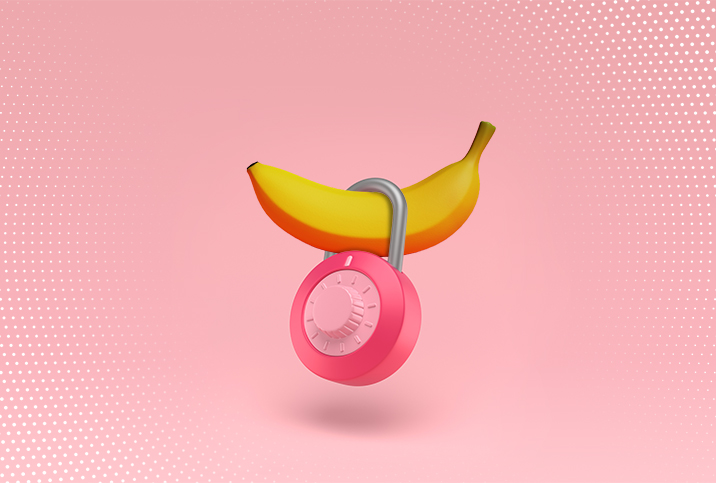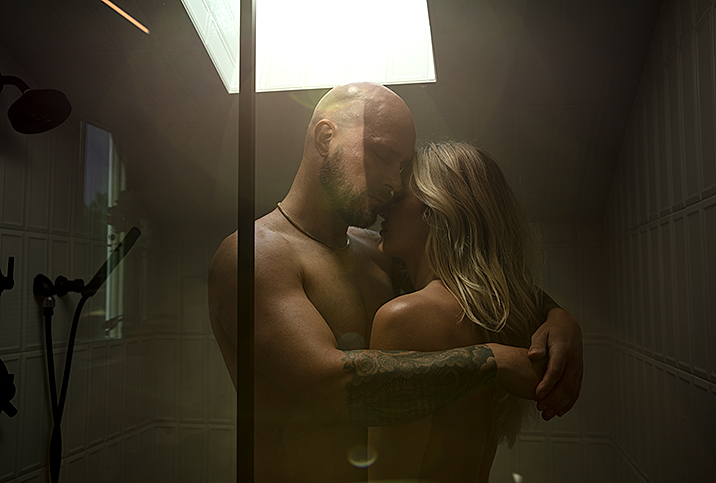How Do You Break a Period of Voluntary Celibacy Without Freaking Out?

Sexual dry spells are normal, but not having sex when you want it can be frustrating, to say the least. Anger, self-doubt and depression are all more likely in involuntary celibates, according to a 2001 study from Georgia University. Voluntary celibacy, on the other hand, can provide the space needed to gain clarity. Whether it's to process heartbreak, heal from sexual assault, deal with a dysfunctional relationship with sex or focus on yourself, a period of abstinence can be empowering.
This isn't to say you want your period of celibacy to last forever; sex is a natural human urge. But how can you be sure you're ready to take the plunge?
Don't overthink breaking your celibacy period
When you start feeling a healthy interest in sexual connection again, it may be time to end your celibacy, said Carla Manly, a California-based clinical psychologist specializing in relationships. A healthy interest means you aren't using sex for validation or out of boredom. After a voluntary dry spell, having sex for reasons other than wanting pleasure or human connection could leave you feeling despondent.
Ultimately, the decision is yours. It's good to consider if you are emotionally prepared to be intimate with someone, but you don't need to overthink it.
"Go with the flow. Do not dwell on it too much. Sex is a natural human instinct," said Chris Pleines, a dating expert from DatingScout in Germany.
It's normal to feel anxious about leaving the sanctuary of celibacy behind, Manly said. This doesn't mean you aren't ready.
It's normal to feel anxious about leaving the sanctuary of celibacy behind.
"It's important for us to face our fears, listen to them as messengers and move through them," she explained.
Ask yourself, "What are the fears that arise? Are they rational or irrational?" If, for example, you were a victim of sexual assault, fearing sex is understandable and you may want to put a system in place, such as meeting people only in daylight, until you feel comfortable taking it further.
It's also helpful to bounce any fears about breaking your celibacy period off somebody, whether it's a friend or a psychotherapist.
"We want to be moving forward in wise ways, not letting anybody push us past our comfort zone but not letting our own inner fears keep us stuck," Manly added.
Respect your own boundaries around celibacy
Having sex with somebody after a period of voluntary celibacy can feel exciting and scary in equal measure, said Renee Denyer, sex educator and award-winning store manager of the United Kingdom's first women-friendly sex shop, Sh! Before being intimate with a partner, Denyer recommended getting intimate with yourself.
"Explore your body and reacquaint yourself with its likes and dislikes," she said. "Pay attention to what your body reacts particularly well to and store the information away for next time."
Once you feel ready to invite someone else into the bedroom, think about what you want from a partner and, potentially, create a list of yes, no and maybes to outline your boundaries. This can include sexual fantasies and activities that you or your partner want to explore.
If you've been single during your sexual hiatus, consider what "moving forward" means to you. Does it mean you want to start dating people again without sex being the end goal? Or is sex the main motivator? Decide before you meet someone you click with.
"[Otherwise,] it can be really hard to maintain your boundaries because your hormones are kicking in, so maybe you end up having sex sooner than you're ready," Manly said. "It's really important to know, on an emotional level and a mental level, what would you like to do and what your boundaries are."
Desires can change. Check in with yourself regularly to see if what you thought you wanted is making you happy.
"Use it as a time to experiment in a really mindful way," Manly suggested.
Sex after celibacy
You're clear on what you want, don't want and might want from this sexual encounter. Now what? First of all, have condoms at the ready, and if you're someone who used long-term contraceptives in the past, consider if you want to start up again.
"It's better to be safe. You might experience a roller coaster of emotions, and excitement is one," Pleines said. "Make sure that you are protected."
Protection? Check. Next up: lube.
"Nerves can ensure juices dry up even if you're feeling turned on and excited for what's to come," Denyer explained.
A few drops of lube (note that oil-based lubricants can break down the latex in condoms) can help make your return to sex smooth and sensual.
Hopefully, your first foray back into sexual intimacy is mind-blowing, but it may not be. It's OK if it doesn't go the way you hope and leaves you questioning if you did the right thing. Manly doesn't believe in feeling guilty, though.
"What I like to do is look at the guilt and say, what can you teach me? What can I do differently? Do I need to apologize to myself? Do I need to apologize to someone else?" Manly said. "And if you've not hurt yourself and you've not hurt somebody else, let's put the guilt aside, learn the lesson and move forward."




















